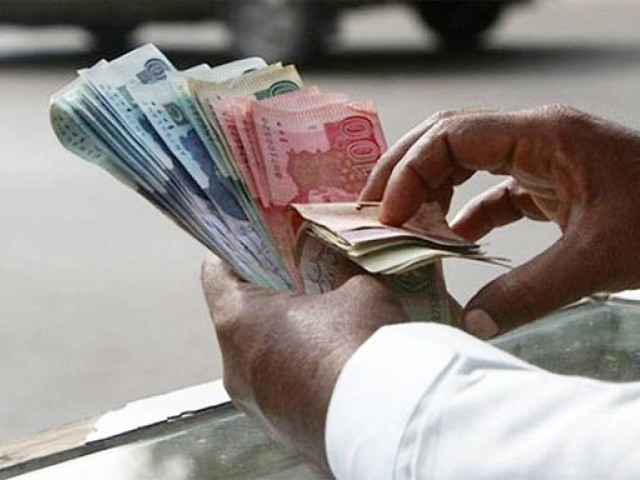
In the short run, additional resources will be used to fund the fiscal and current account deficits. However, it may not deliver on this front as the government has struggled to generate any substantial revenue.
Now the government is considering, some reports have confirmed, securing a credit line of $1.3 billion from China to avert a currency crisis. This is another classical example of mismanagement.
Justifications given by the government are nothing but like old wine in a new bottle with the eye-catching label of bad governance. It seems bizarre to absorb the government’s explanation that the step has been taken to broaden the tax base. Evidence suggests that amnesty schemes have not worked in Pakistan.
Past schemes only encouraged the tax dodgers, which resulted in shrinkage of the tax base. Figures reveal that the number of taxpayers has come down to 1.2 million in 2017 from 2.4 million in 2007. This is an unfortunate case that despite amnesty schemes the tax base has continued to contract.
We can learn lessons from the Musharraf government when the tax base started expanding. In fact, it was during that time the government surpassed the targeted revenue – a unique case in the country’s tax history.
However, this trend reversed after 2007. The newly elected democratic government could not sustain the growth momentum and the tax base started to narrow. A major reason for this was bad governance.
The shrinking tax base has been the result of policies of successive governments. Every time the government announced an amnesty scheme, it was promised that it would be the last chance and strict measures would be taken after that.
It is not understandable what steps the government is taking in the presence of support to tax dodgers and non-tax payers.
The calculation is very simple. If I can get my wealth legalised after paying 2%, why should I pay 15% or 17% tax on a regular basis. But every time Pakistan has witnessed the escape of existing taxpayers from the tax net and decline in the tax base.
Despite collecting toll taxes, NHA to take $294m loan from ADB
It is evident from analysis of the tax system that the problem is not with the taxpayers; it is bad governance, which is hurting revenue collection. Bad governance of the tax system has multiple layers.
Firstly, the government has failed to register unregistered businesses. An effort was launched during the Musharraf’s government, but no serious efforts were made after his departure.
The SRO culture is another hurdle introduced by the government that has dented the tax structure. The government obliges big business entities by offering SROs, which have a negative impact on the national economy and the tax system.
This trend discourages small businesses and exporters, who always struggle to get rebates. The salaried class also feels disappointed as they consider themselves victims of a weak and biased tax structure.
Overall, it diminishes the will of small businessmen to contribute to the national revenue.
Apart from the financial and tax base loss, the current tax amnesty scheme also has severe implications at the global level. The Financial Action Task Force (FATF) considered it as a lack of will of Pakistan’s government to tighten financial management. In this regard, the FATF issued a statement, stating that the government of Pakistan did not consult nor did it seek permission from it.
Mammoth task: FBR needs to collect Rs661b more to meet tax target
This statement is a real warning for Pakistan as the FATF is already considering putting Pakistan on the grey list. The FATF looks at the matter from the perspective of money laundering and terror financing and weak financial management at the government level is a bad signal.
It will be taken as facilitation for tax avoiders and money launderers. It will weaken Pakistan’s case.
Despite the serious consequences of being put on the grey list, the government is busy trying to justify its actions. The government is confident that legally Pakistan is strong and there would be no problem for Pakistan. However, it does not realise that it is also about the perception of countries about Pakistan, which at the moment is at its lowest level.
MoU inked for automation of Balochistan tax collection system
Bad governance and decision making in the tax system will hurt Pakistan in two ways, locally loss of revenue and base, globally bad perception about Pakistan in the field of financial management. After the Panama leaks, governments across the globe are introducing bills and laws under which people are bound to explain the source of their income. Pakistan can use this opportunity to increase revenue, expand tax base and improve perception of the country by taking similar policy actions.
Unfortunately, Pakistan is trying to run in the opposite direction, which may lead to a series of problems. Pakistan may end up being on the grey list, which in turn will dent the economy. The bad performance of the economy will lead to a further reduction in tax collection and a shrinking tax base.
The writer is the Head of Centre for Future Policy and Head of Research Coordination Unit, Sustainable Development Policy Institute
Published in The Express Tribune, June 4th, 2018.
Like Business on Facebook, follow @TribuneBiz on Twitter to stay informed and join in the conversation.

















COMMENTS (1)
Comments are moderated and generally will be posted if they are on-topic and not abusive.
For more information, please see our Comments FAQ